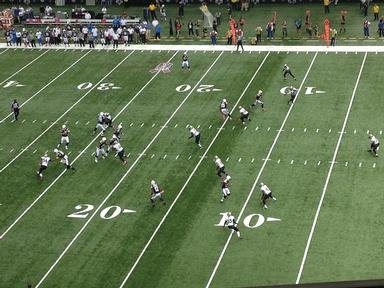
Illegal Sorting, Five Points, Replay Third Column Quiz
Penalties in the NFL
There are so many penalties in the NFL that it can be tough to keep track of them all. See if you can group some of the most common 15 penalties into their standard yardages imposed for an infraction.
A classification quiz
by bmrsnr.
Estimated time: 3 mins.